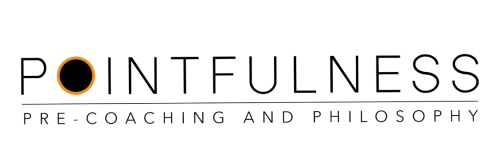I'm getting closer every day...
“My ego must understand that it becomes greater when it leaves me in peace.”
I define myself as a deeply cerebral person. I need to understand things. I don’t believe in revealed spirituality, but in reasoned spirituality.
This phrase came to me during a moment of tension and temptation, when my ego managed to whisper that my calm was laziness, and that my conscious renunciation was just fear of losing.
Maybe the world is not ending — maybe it's just you, waking u
We love to believe that this time, it’s really the end.
That the collapse is global, that the crisis is irreversible, that everything is about to change. Climate, AI, wars, economics — the signs are everywhere.
But what if that’s not the world ending?
What if everything were actually upside down ?
I was listening to Jordan Peterson speak about the value of impulse control. He said there’s no merit in a weak person claiming to control their violence. Virtue lies in the one who can cause harm… and chooses not to. Like a martial arts master who holds immense power—and never needs to use it.
Be more, own less
It’s one of the great spiritual dilemmas: do we need to let go of material things to find happiness?
Scars from a thousand battles
Heroes show their scars—whether from the ring, the cage, or the battlefield. The broken nose or bullet wound may have healed over time, leaving a mark as testimony to past pain, often overcome. These scars become symbols of pride and recognition—for bravery, strength, and resilience. Our atavistic culture, shaped by conflict and the dominance of physical force, honors them as such.
The fear of being left out
In the film American Psycho (2000), Christian Bale plays an executive whose identity seems reduced to his business card. Paper, typography, texture—his entire persona summed up in material details. Belonging to the company matters more than his own inner worth. Behind the façade: a bottomless void.
When Infinity meets Zero
One day, perhaps, Artificial Intelligence will know everything. It will have absorbed every formula, every word, every nuance of human history. It will be able to compose symphonies, cure diseases, simulate love, wisdom, and presence.
A mind surgeon?
Not long ago, a client told me I was “a mind surgeon.” I had never thought of myself that way—but I must admit, the word Pointfulness—getting to the point—resonates deeply with that idea.
Stay or leave ? The silent dilemma of our time
There are moments when we can no longer keep feeding illusions. Uncertainty stops being a hypothesis: it becomes a mere hope in the face of an adverse certainty—and the framework within which we must now operate.
Is the world crazy ?
Anyone who has lived long enough probably won’t remember a time when people weren’t saying the world had gone mad. Crises—of all kinds—come and go like waves in the ocean: sometimes calm, sometimes turbulent. We stay tuned in to the news and its constant (and well-commercialized) stream of events, statements, and speculations, which we often link to our own lives, even though they rarely affect us directly. Just a brief disconnection is enough to realize that, despite its ups and downs, life flows more peacefully than we usually perceive.

